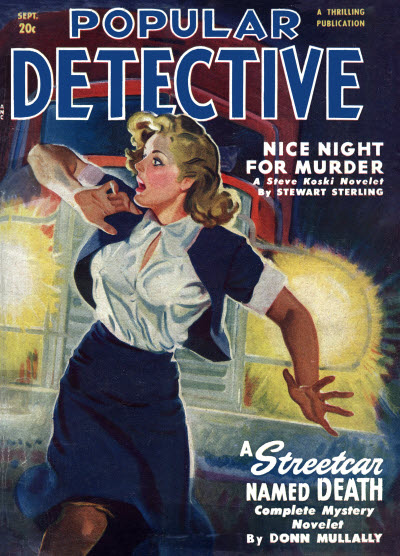

- #Author of series featuring detective named philis movie#
- #Author of series featuring detective named philis professional#
- #Author of series featuring detective named philis tv#
More playful versions are generally given much more prominent placement, so everyone can recognize how clever the creators are being, though subtle modifications of the phrase "persons living or dead" may be easily missed by less alert viewers. When played straight, the disclaimer is generally buried amid a bunch of similar legalese (at the end of the credits or on the copyright page of the book, for example) where it might be easily missed. (And sometimes publishers make the mistake of putting it in books openly Based on a True Story e.g., the first printing of the Touchstone paperback edition of Schindler's List.) Works Based on a True Story may use a modified disclaimer, acknowledging the historical basis for the work but stating that it doesn't necessarily conform 100% to history.Īlthough not a Dead Unicorn Trope, this can easily be mistaken for one by the unobservant.
#Author of series featuring detective named philis movie#
Sometimes this disclaimer is the only part of the movie that's fiction, especially when the real people in question lived long enough ago that they're not going to sue anybody. And thus was a standard piece of legal boilerplate born. A few of the characters are still alive-the rest met death by violence." In other words, it pretty much claimed that "Much of what follows is true." A justice involved in the UK libel case pointed out that MGM would have had a better chance if they had incorporated the direct opposite: a disclaimer that the film was not intended as an accurate portrayal of real people or events.

Minor historical footnote It's of some note that Rasputin and the Empress had the following text at the beginning of the movie: "This concerns the destruction of an empire. This trope has nothing to do with intellectual property, and it's basically saying "if some of this seems Ripped from the Headlines, it wasn't intentional", so it has more legal significance. portrayed are someone else's intellectual property and used without permission: it's basically saying "It's Fair Use because I don't pretend it's mine" and it doesn't do much legally. note I Do Not Own admits that the characters, etc.
#Author of series featuring detective named philis professional#
note More precisely Princess Irina of Russia, the only niece of the last tsar, who was married to Rasputin's murderer, Prince Felix Yusupov Think of it as the more professional equivalent of I Do Not Own, though with more legal force. It's an attempt to stave off libel suits it seems to have originated as a response to a suit against the makers of the 1932 film Rasputin and the Empress by a Russian princess who believed one of the characters to have been modeled on her.
#Author of series featuring detective named philis tv#
Some form of this disclaimer can be found at the front of nearly every novel out there as well as in the credits of most films and TV episodes. Any resemblance to actual events or locales or persons, living or dead, is entirely coincidental. Names, characters, places and incidents either are products of the author’s imagination or are used fictitiously. LP Archive, on the Metal Gear Solid 2 disclaimer.


 0 kommentar(er)
0 kommentar(er)
